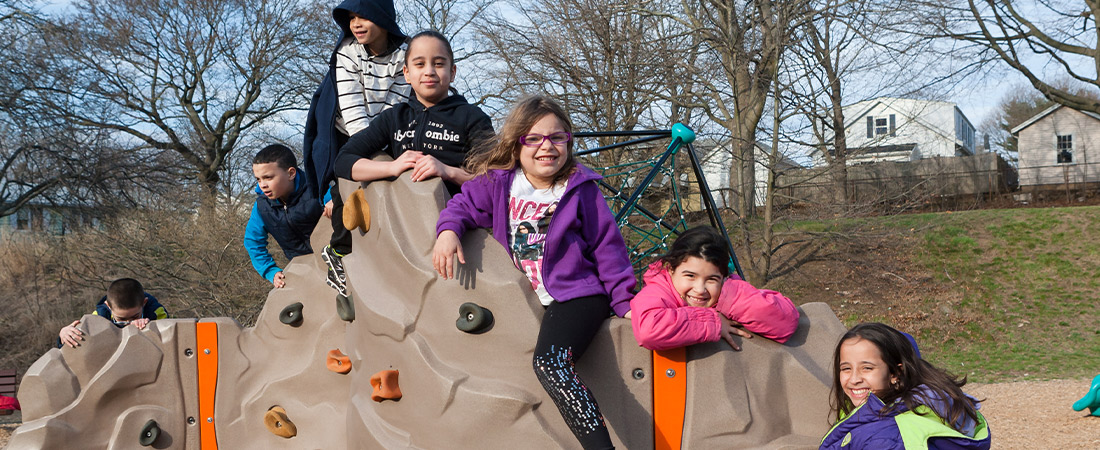
Powerful learning experiences often happen outside of the school day. EDC builds, implements, and evaluates out-of-school and nonformal programs that deliver core civic, educational, and life skills to young people in diverse environments.
In the United States, EDC’s support for out-of-school time (OST) and nonformal learning leverages children’s and youth’s strengths to help them succeed at school, engage in their communities, and lead productive and healthy lives. We design, evaluate, and provide technical assistance on high-quality OST programs that prepare young people for success—whether pursuing social and academic enrichment after school or leaving school and starting a first job.
Internationally, EDC develops and implements programs that support educational and economic opportunities for out-of-school youth. Working within the unique context of each country, we partner with governments, industry, and nongovernmental organizations to provide young people with the skills, knowledge, and opportunities they need to be market-ready and contribute to society.
Related Content
EDC Talks: How Do You Develop High-Quality Out-of-School-Time Programs?
Children can learn a lot from programs that take place outside of school hours.
4 Ways to Strengthen Youth Programs in Conflict and Crisis Areas
Building youth programs in unstable regions can be challenging. Here are four ideas for practitioners.
A Success Story in Senegal
Meet Adama Diedhiou, a participant in EDC’s workforce development program in Senegal.
A Second Chance at School in Mali
In Mali, accelerated education is helping thousands of children get back to school.
3 Ways to Stop the Summer Slide
Want to help kids keep learning this summer? Here are some tips for parents and caregivers.
New Entrepreneurs Launched in Rwanda
EDC’s workforce development efforts in Rwanda are helping young people build the skills for work.
Projects
Resources
Here are a few of our resources on out-of-school learning. To see more, visit our Resources section.
The Committee on Successful Out-of-School STEM Learning, appointed by the National Research Council’s Board on Education, was charged with identifying effective out-of-school STEM settings and prog
This document outlines a bold new vision for EDC's next chapter of work and impact. Building upon our 65-year legacy of global impact in education,
This curriculum guide is designed as a tool to help teachers in autism inclusion schools facilitate an after-school or lunchtime “Maker Club.”
This guide provides a conceptual framework, instruments, and tools for designing and implementing youth assessments in developing countries.
This program note presents summary findings of an evaluation study of the global Hewlett-Packard Learning Initiative for Entrepreneurs (HP LIFE) program, conducted in China, India, Kenya, Nigeria,
A series of 14 design engineering booklets that include student and teacher guidance for implementing long-term activities, such as designing a pinball game or building a trebuchet.
This program guide offers a resource for development specialists initiating or strengthening integrated literacy programs for youth aged 15 to 24 who are not involved informal education.
The Learning Generation Report presents an action plan to deliver and finance an expansion of educational opportunity for more than 260 million children and youth who are not in school today.
This paper explores how the Government of Mali, with support from the U.S. Agency for International Development and Education Development Center, Inc., used innovative tools and methods (including georeferencing, mapping, and school/village surveys) to better understand the twin challenges posed by home-school distance and inefficient teacher distribution in rural communities and why Mali chose an old-school solution: one-room, multi-grade schools equipped with trained teachers and appropriate materials.
The USAID Huguka Dukore activity is a 5-year (December 9, 2016-December 8, 2021) youth employment program that will provide 40,000 out-of-school youth, including 34,000 new youth and 6,000 Akazi Kanoze alumni, with market-relevant employability skills and pathways to new or better employment.
